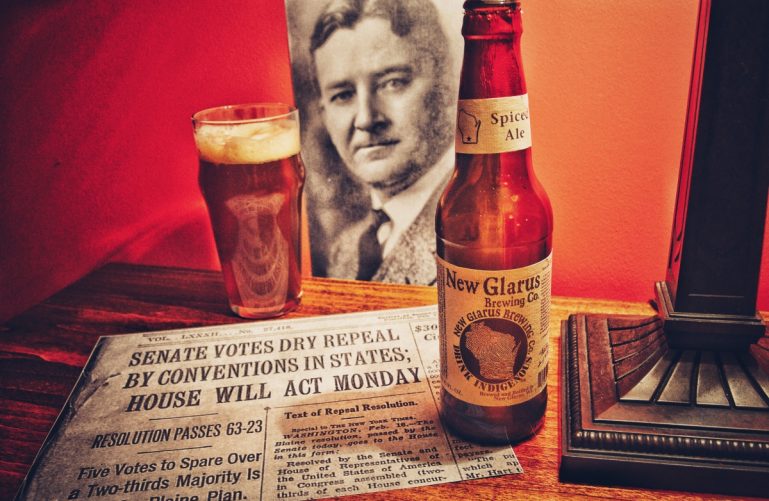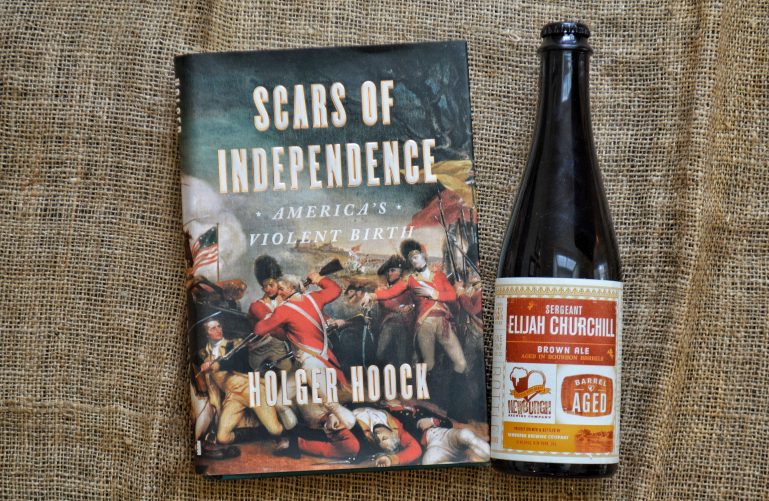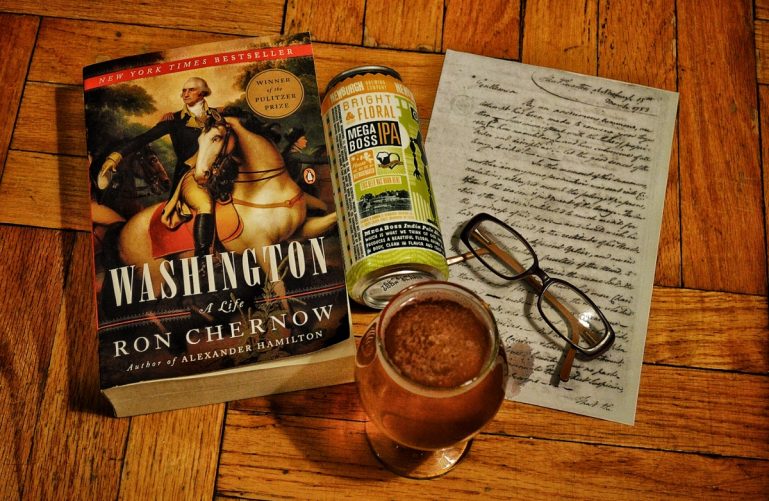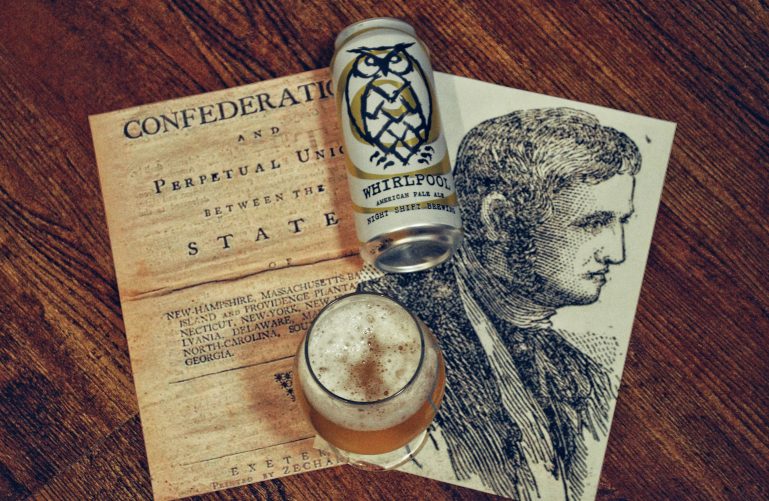John Blaine: The Senator Who Ended Prohibition

Modern liquor laws reflect how the different levels of government in the United States might operate if we still had a weak central government (e.g. The Articles of Confederation). In a nutshell, the states create most of their own regulations concerning alcohol within their borders. That’s why you can buy liquor and wine in New York liquor stores, but you have to go somewhere else to buy your beer. Or why you can buy anything you want in a grocery store in Illinois, but you have to go to state-licensed liquor stores for anything above 3.2% ABV in Kansas. Speaking as someone who’s had to cross county lines to get some beer in Kentucky, the inconsistency of these laws is frustrating to say the least.
Believe it or not, there’s even leeway when it comes to drinking age. While the National Minimum Drinking Age Act of 1984 “set” the legal age to purchase and publicly possess alcohol at 21, its power comes from coercion. If states did not enact the age restriction, the federal government would cut their federal highway funding by 10% (as of right now, it’s actually been lowered to 8%), so it stood in the states’ best interests to go along with the act. And technically speaking, it’s legal in many states for those under than 21 to consume (not purchase) alcohol in certain private settings. So those loveable scamps on Gossip Girl aren’t necessarily the law breaking drunks you assumed them to be.
What do we have to thank for this hodgepodge of regulations? Prohibition. Yep, that Prohibition.
Prohibition in the United States

Prohibition in the US was the culmination of work by the Temperance movement to save US citizens from the evils of alcohol. Despite Americans’ close relationship with drinking, there had always been rumblings about its immorality. However, early regulations centered on excessive use, rather than an outright ban (even among those puritanical Puritans!). As the 19th Century progressed, the Temperance movement gained steam as it looked to combat familial violence, political corruption and immoral behavior through the ban of alcohol. Noble reasons for sure, but abstention from alcohol doesn’t necessarily create a better person. After all, Adolph Hitler was a noted teetotaler.
 The start of World War I proved to be a boon for temperance folks. An increase in nativism, particularly against the beer swilling Germans, efforts to ration grain usage during World War I and the work of the Anti-Saloon League created the popular support needed for federal legislation. Ratified on January 16, 1919 and enacted the following year, the 18th Amendment prohibited the production, transport and sale of alcohol in the United States. Its passage ushered in 13 years of a completely sober and lawful America.
The start of World War I proved to be a boon for temperance folks. An increase in nativism, particularly against the beer swilling Germans, efforts to ration grain usage during World War I and the work of the Anti-Saloon League created the popular support needed for federal legislation. Ratified on January 16, 1919 and enacted the following year, the 18th Amendment prohibited the production, transport and sale of alcohol in the United States. Its passage ushered in 13 years of a completely sober and lawful America.
Yeah, not really. Long story short, Prohibition failed. People still drank, the government lost out on the tax revenue collected from alcohol, it was difficult to enforce, organized crime flourished thanks to bootlegging/smuggling and an entire industry found itself out of a job. Sure, it served as the inspiration for “The Untouchables,” a veritable classic of gangster cinema, as well as the backdrop for The Great Gatsby, but Prohibition kinda sucked. Once the Great Depression hit in 1929, the revenue and potential for alcohol-related jobs offered an incentive to repeal the 18th Amendment and end Prohibition. “Wet” politicians were more than happy to get the ball rolling.
The Beer Savior

And this is where Senator John Blaine enters the picture. Born on his family farm in Preston, Wisconsin on May 4th, 1873, Blaine studied law at Northern Indiana University (now known as Valparaiso) returning home to Wisconsin to practice in 1896. Starting as the mayor of Boscobel, he worked his way up the political ladder to state senator, Wisconsin attorney general, three term governor and then finally US Senator in 1926.
Politically speaking, Blaine fell under the umbrella of Progressive Republicans. Progressives sought to wipe out corruption in government and industries (remember the muckrackers from high school history?) while also fixing various social issues that arose from the modernization of America. From combating poverty and the exploitation of workers to conserving the environment and creating a more egalitarian America, they played a significant role in reform legislation in the late 19th and early 20th century. Fundamentally, Progressives sought to create a government that would be held accountable by the people and not special interests. Sound familiar? Their movement scored numerous victories and saw three from their ranks win the Presidency (Theodore Roosevelt, William Taft and Woodrow Wilson).

Unlike some of his Progressive colleagues, Blaine was a “wet” politician, meaning he opposed the government’s prohibition of alcohol. A significant portion of Wisconsinites, many of whom were the maligned beer drinking German immigrants, agreed with Blaine’s opposition. In fact, throughout Prohibition alcohol was widely available in Wisconsin. Frank Buckley, a federal Prohibition agent, noted that “Wisconsin. . .is commonly regarded as a Gibraltar of the west—sort of a Utopia where everybody drinks their fill and John Barleycorn still holds forth in splendor.” God bless you, you drunk Wisconsin bastards.
When Blaine was elected to the Senate, the illusion of support for Prohibition was waning in Wisconsin. In April of 1929, Wisconsin voters overwhelmingly approved a referendum (one of those lovely governmental reforms enacted by Progressives) which repealed the Wisconsin’s Severson Act, thus ending state enforcement of Prohibition. Blaine, who had “[pledged] loyalty to the will of the people,” began to work on the repeal of Prohibition at the federal level.
The (Legal) Return of Brews

On February 14th, 1933, Senator Blaine introduced Senate Joint Resolution 221 (AKA the Blaine Act), which called for the repeal of the 18th Amendment. Approved by the Senate on February 16th and the House of Representatives on February 20th, the states were instructed to hold conventions to determine ratification. Wisconsin would be the second state to approve the ratification the proposed Amendment on April 25th (their equally boozy compatriots in Michigan were the first). With Utah’s affirmative vote on December 5th, the 21st Amendment was officially ratified, ending Prohibition and the federal government’s meddling with Americans’ drinking habits. Since then, the states have been allowed to regulate alcohol as they see fit, leading to the labyrinth of laws that continually befuddle tourists.

Blaine would only serve one term in the Senate, but likely had one of the most influential single terms in the past century. Returning home to Boscobel to practice law, he died on April 18th, 1934 at the age of 58 from pneumonia; a quiet end for the man who helped ensure lawful drunken revelry for generations of future Americans.
Beer Pairing: New Glarus Brewing
As home to some of the oldest breweries in the United States (Leinenkugel, Stevens Point, Miller, Minhas) and birthplace of The King of Ironic Beers, Pabst Blue Ribbon, beer culture has deep roots in Wisconsin. In a 1924 letter to Fred Pabst, Blaine wrote of Wisconsinites’ passion and inventiveness with regards to alcohol:
Wisconsin has very good enforcement of the liquor laws, but if [the drys] are going to have to have absolute prohibition . . . it would be necessary to have a law that would destroy practically the entire vegetable kingdom. And even when they got through with all this perfect, inventive ingenuity of the human race would probably be able to extract the necessary ingredients from the air, from the soil, or from the water.
With 121 breweries and an annual production of more than 1 million barrels (about 330 million pints), Wisconsin continually ranks among the nation’s most beercentric states.
 The most fabled Wisconsin brewery among the craft beer community is undoubtedly New Glarus Brewing in (surprise!) New Glarus, WI. Impossible to find outside of Wisconsin, but plentiful within, New Glarus beers hold an aura of mysticism among out-of-staters. I myself have made multiple trips to the (in)famous Mars Cheese Castle (yes it is a castle, but no, it sadly isn’t made of cheese curds), just over the Illinois-Wisconsin border to stock up on New Glarus.
The most fabled Wisconsin brewery among the craft beer community is undoubtedly New Glarus Brewing in (surprise!) New Glarus, WI. Impossible to find outside of Wisconsin, but plentiful within, New Glarus beers hold an aura of mysticism among out-of-staters. I myself have made multiple trips to the (in)famous Mars Cheese Castle (yes it is a castle, but no, it sadly isn’t made of cheese curds), just over the Illinois-Wisconsin border to stock up on New Glarus.
Best known for their Spotted Cow Cream Ale, New Glarus mostly sticks with the classics, a hearkening back to the impact of German’s on the Wisconsin beer landscape. Lagers, hefeweizens, brown ales, bocks, stouts, wild fruit ales and sours form the backbone of New Glarus’ offerings. Their devotion to the consistent brewing of time honored styles since their founding in 1993 helps drinkers know exactly what they’re getting when they pop open one of New Glarus’ beers.
 As luck would have it, I stumbled a long forgotten New Glarus beer in the back of my beer cabinet. Thankfully, it was also one that a little aging didn’t hurt. Part of their Thumbprint Series (an ongoing collection of one-off and limited edition beers), New Glarus’ Spiced Ale, a strong ale (think Stone’s Arrogant Bastard or Lagunitas’ Brown Shugga’) aged on oak with Cassia cinnamon, ginger and allspice, was brewed in January 2014, making my bottle a respectable three years old.
As luck would have it, I stumbled a long forgotten New Glarus beer in the back of my beer cabinet. Thankfully, it was also one that a little aging didn’t hurt. Part of their Thumbprint Series (an ongoing collection of one-off and limited edition beers), New Glarus’ Spiced Ale, a strong ale (think Stone’s Arrogant Bastard or Lagunitas’ Brown Shugga’) aged on oak with Cassia cinnamon, ginger and allspice, was brewed in January 2014, making my bottle a respectable three years old.
Pouring a deep amber with a creamy white head, it looks the part of a beer suited for colder weather. Intense caramel and oak aromas quickly grabbed my attention. Toffee and caramel malts blend with woodiness to dominate the flavor. Faint orange and vanilla peek through as it warms up. The spices have become rather muddled and subdued, something I definitely contribute to the age. While on the edge of being a tad too sweet, the distinct presence of alcohol keeps it from becoming cloying. A smooth drinking beer, it gives you that nice warm feeling as you finish it.
So, next time you’re enjoying a few drinks either in the comfort of your home or at your favorite brewery raise a glass to John Blaine of Wisconsin. When it comes down to it, a multitude of confusing liquor laws are a hell of a lot better than just one banning it outright. Cheers!



